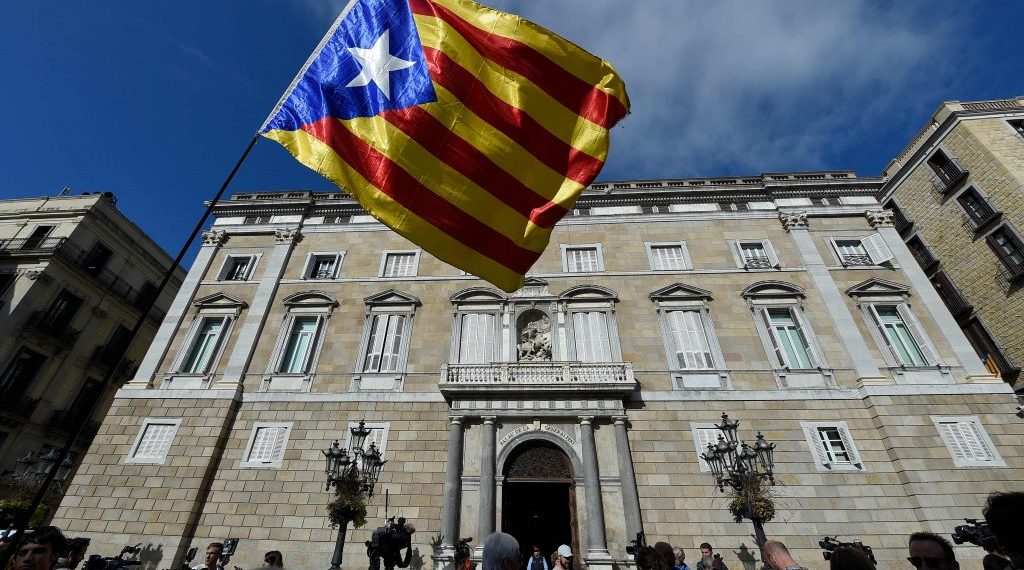Catalonia’s separatist-dominated parliament drew a fresh rebuke from Spain on Tuesday after approving a text in favor of self-determination, despite it being suspended just minutes earlier by the Constitutional Court.
Although such resolutions by the Catalan parliament are purely symbolic – the chamber not having the authority to make such decisions – they have been routinely overruled by the Spanish courts.
But the move could have legal consequences for regional parliament speaker Roger Torrent, who has received repeated legal warnings not to allow such initiatives.
Passing the motion was the latest in a string of moves by separatists in the northeastern region, which has been rocked by protests since mid-October when Spain jailed nine of its leaders over a failed secession bid.
Approved with the support of the three separatist parties in the chamber, the text refers to the desire “to tangibly exercise the right to self-determination and to respect the will of the Catalan people.”
Police in riot gear are seen kicking protesters as they use force to remove hundreds of people blocking a highway that connects France to Spain’s Catalonia region https://t.co/JgflCKMhzp pic.twitter.com/Ae0WES6Ivk
— Reuters (@Reuters) November 12, 2019
The time of the debate was brought forward in a bid to avoid the expected censure of Spain’s Constitutional Court, which met during the morning to discuss a lawsuit against the motion filed by Pedro Sanchez‘s Socialist government.
The court suspended the resolution just minutes before the vote in the Catalan parliament, but lawmakers went ahead anyway.
Mutinous MPs
Since September 2015, when separatist lawmakers won a majority in the regional parliament, the Constitutional Court has routinely suspended every motion aimed at advancing independence.
Separatist parties have pushed ahead regardless, insisting on their parliamentary right to debate anything, and in September 2017, they passed a law paving the way for an independence referendum on October 1, despite the court declaring it unconstitutional.
After a violence-marred vote, they issued a short-lived declaration of independence, prompting Madrid to sack the Catalan government, suspend the region’s autonomy and put their leaders on trial.
One of the defendants was former parliamentary speaker Carme Forcadell who was accused of ignoring legal warnings about pushing through laws that laid the groundwork for the referendum and for secession.
Last month, the 64-year-old was convicted of sedition and sentenced to 11 years and six months behind bars. Eight others were also handed lengthy jail terms.
Ahead of the October 14 verdict, the Catalan parliament again adopted a clutch of motions granting legitimacy to civil disobedience, demanding the withdrawal of Spanish police from the region, and calling for amnesty for its leaders.
More on the Subject
General Strike, Mass Protests Grip Catalonia After Explosive Supreme Court Verdict






















